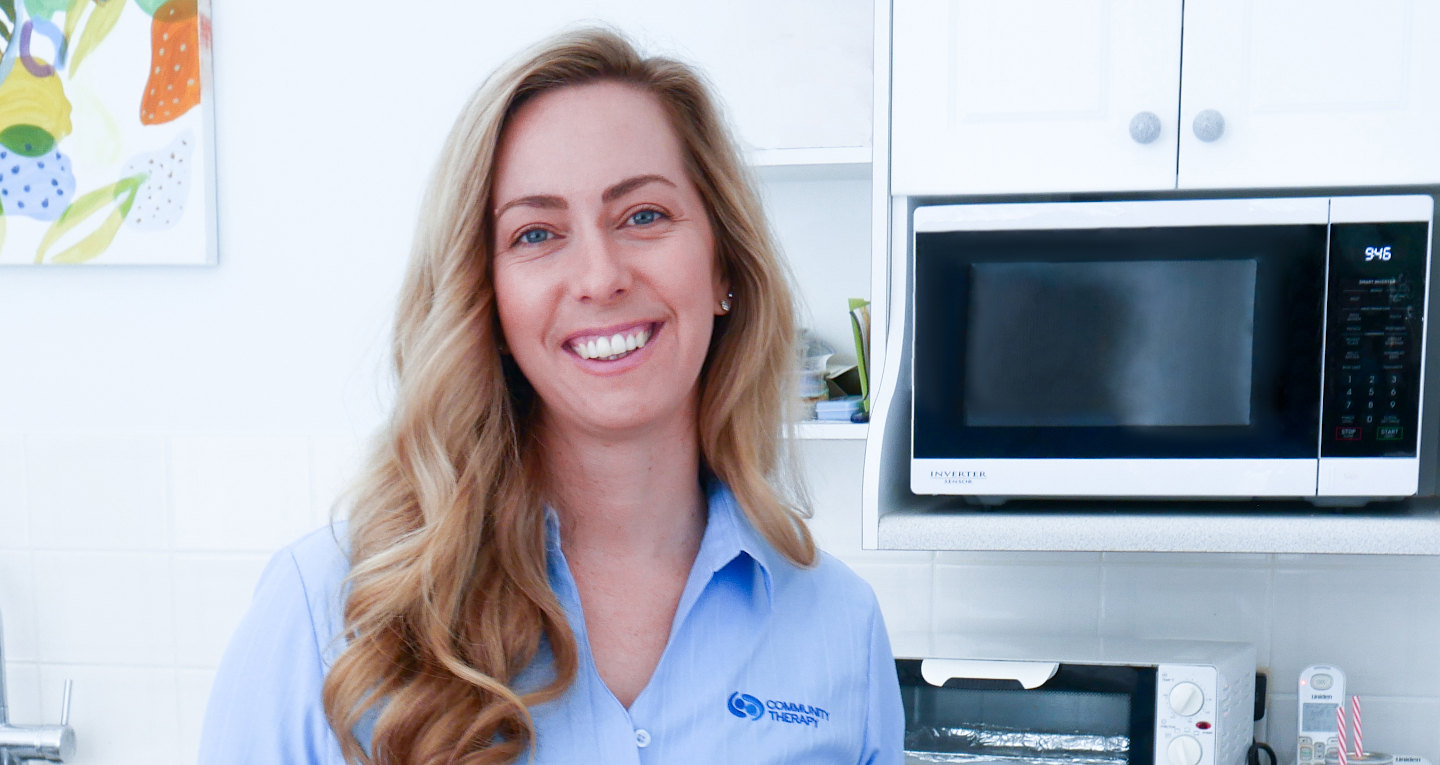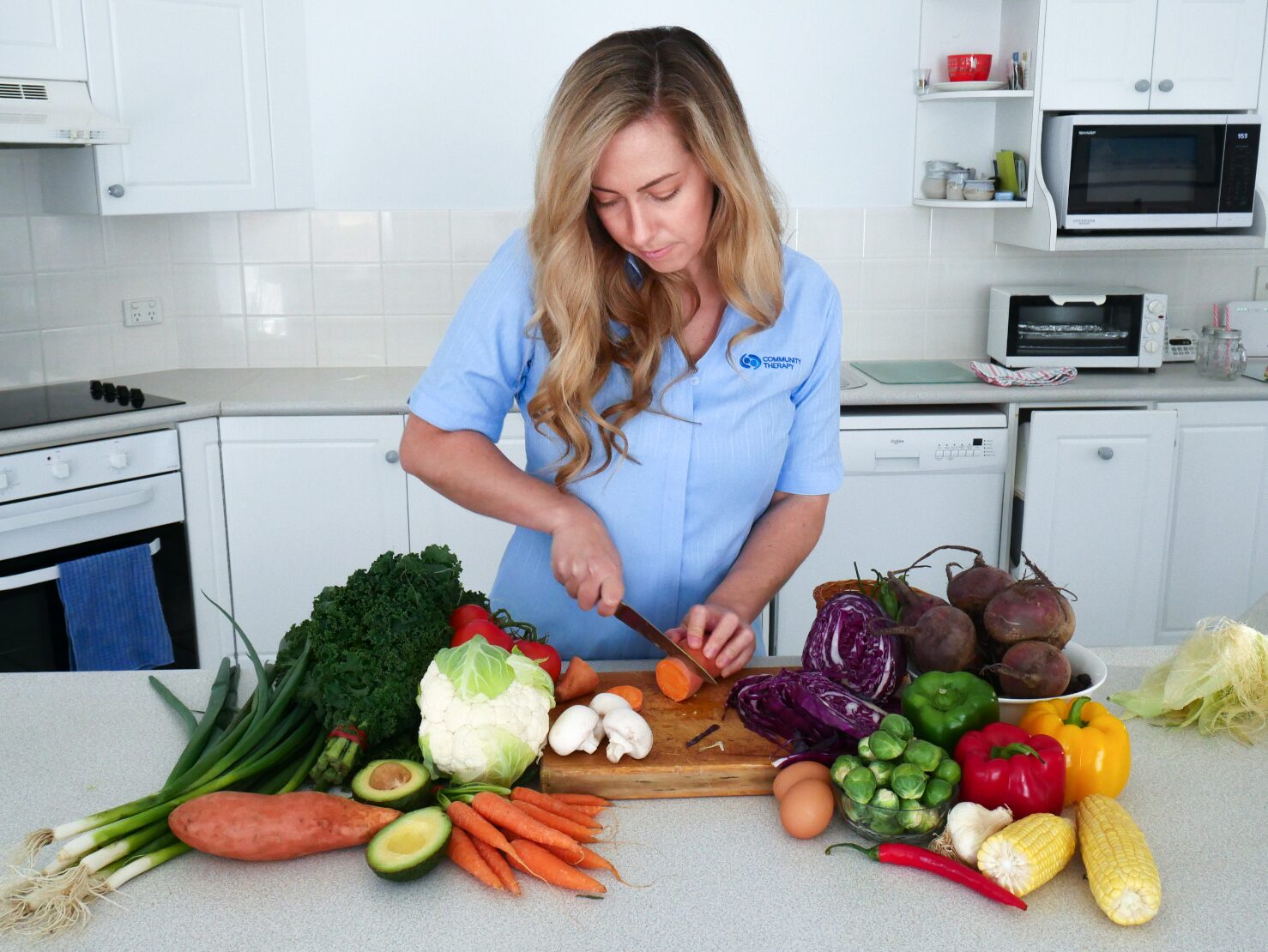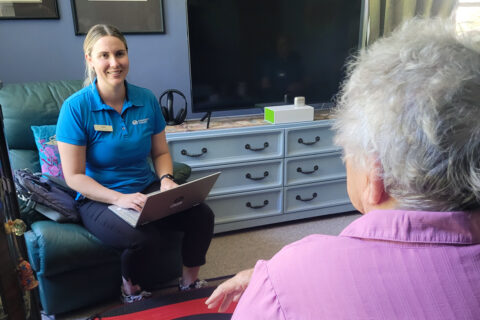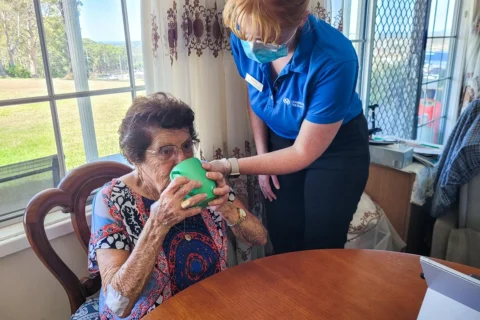
Dietitians are often associated with weight loss and restrictive diets.
In reality, a Dietitian’s role goes well beyond simply weight loss or weight gain.
A Dietitian has a wealth of knowledge about nutrition and the impact of diet on the body. When treating a patient they will consider all the factors that play a role in someone’s health, including:
- Culture and social circumstances
- Medications or supplements (such as prebiotics or probiotics)
- Life stage (and potential associated hormonal changes)
- Exercise preferences
- The activities of their daily life
- Current eating habits and portion sizes
For some clients, weight will be a factor. For others, it may be about micronutrient levels and the role they play in keeping organs at their peak function.

I live with allergies and intolerances. I’m afraid to try certain foods. What should I do?
A Dietitian would start by finding out more about those allergies and intolerances. They might ask:
- Have tests been undertaken to determine the details and extent of the allergies/intolerances?
- Are there blood test results available for them to look at?
If an allergy is suspected but not yet confirmed, a visit to the GP is the best starting point for appropriate tests including blood and patch tests.
A GP may also provide a referral to an immunology clinic. In some cases, this may mean more significant testing such as a surgery or biopsies.

Intolerances
Intolerances can usually be sufficiently managed with dietary changes and the support of a Dietitian.
An elimination diet is used to reduce, and then re-introduce particular irritants. Managing an elimination diet is worthwhile because it helps avoid permanent restrictions. It can, however, take a significant amount of time to complete because inflammation can take up to twelve weeks to resolve.
Allergies
Allergies, comparatively, may need additional management.
While a Dietitian can certainly help, in some cases a GP or specialist will be required as well.
For example, a severe peanut allergy may require someone to have an EpiPen on hand. In cases such as this, a doctor can manage the prescription of medication while a Dietitian can support with educating the patient around how to avoid particular foods.

I love my guilty habits. I’m scared a Dietitian will tell me to stop. Is that right?
Sometimes Dietetics is – mistakenly – only associated with restriction.
In fact, a Dietitian’s expertise is in knowing how to create balance. In many cases advice won’t be about cutting out foods, it may just be around how to swap some things in or out, or how to make better choices.
For example, if somebody wants to enjoy coffee every day, there’s every chance that’s fine. Provided there were no allergies or intolerances at play, a Dietitian might discuss the impact the high amounts of caffeine can have on health. They may ask about symptoms such as:
- Trouble sleeping
- Pains in the stomach
- Reflux
- Diarrhea or constipation
Their role would be to educate the person to help them make informed decisions.
While ‘everything in moderation’ is a wonderful saying, it really comes down to knowing where those lines are.
A Dietitian can help someone to understand where their healthy limits are.

I don’t know all the foods I can try. I’m want to find out about less-common ingredients. What resources are available?
The Australian Guide to Healthy Eating is a valuable source of information.
In addition, the Dietitian Australia website has a significant number of resources. (All Dietitians in Australia are required to be registered under Dietitians Australia).
The Food Standards for Australia and New Zealand (FSANZ) also provide a wealth of information. This can be a useful resource for:
- Learning about specific foods or food groups
- Understanding labelling
- Understanding food product marketing
- Understanding the Healthy Star Rating system.
For anyone who is dealing with a specific disease or condition, our recommendation would be to consult with a Dietitian to obtain tailored information and advice.

What is an alternative for diet soft drinks?
Staying hydrated is an important part of staying healthy. If diet soft drinks help to achieve this, then they are not necessarily a bad thing.
For people who have an aversion to drinking plain water, flavouring water with fresh fruit can be a good alternative.
Like everything, soft drinks should be consumed in moderation. For people managing diabetes, diet or sugar free soft drinks can provide a good alternative to high sugar drinks.

I don’t know when to eat high/low GI foods, what should I do?
Foods that have a low Glycaemic Index (GI) release their sugars over a longer period of time. This can help avoid sharp highs and lows for the body. For people who are managing diabetes, this can be particularly important.
For someone who is not diabetic, the right time to eat high or low GI foods will depend on the amount of activity they are doing. Before going for a run, it may be sensible to have a small amount of a food that is quite high GI in order to provide the body with a quick spike in energy. An example might be having a half a banana before going for a run or doing a gym workout.

Do you have a question for Community Therapy’s Dietitian team?
We’d love to work with you! Here’s a little bit about us:
- We are an Australian-owned company
- We visit you, we service the great Hunter and Central Coast
- We are university-trained
- We are prompt and professional
- We are NDIS registered
To get in touch, please use our contact page.


 November 27, 2024
November 27, 2024

